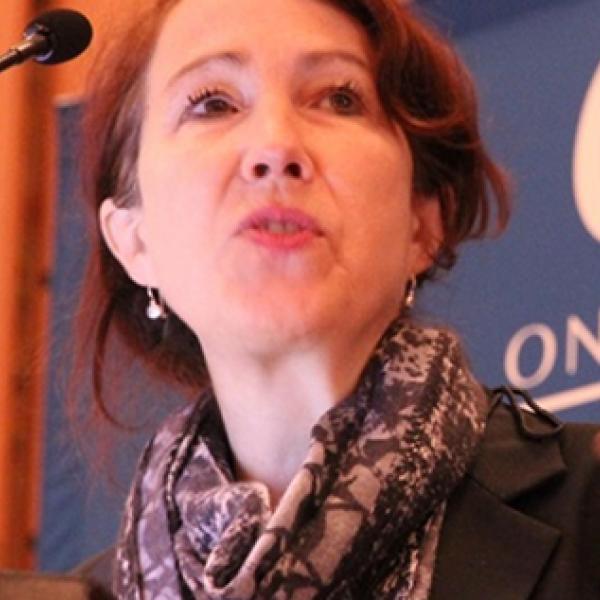Archive/Counter-Archive (A/CA): Activating Canada’s Moving Image Heritage is a seven-year research-creation project focusing on preserving the audiovisual cultural heritage of Indigenous Peoples (First Nations, Métis, Inuit), Black communities and people of colour, women, LGBTQ+ and immigrant communities. Two events at Congress 2023 will demonstrate its ongoing objectives.

“The project itself grew out of a crisis,” says Janine Marchessault, principal investigator and professor in the Department of Cinema & Media Arts at York University’s School of the Arts, Media, Performance & Design. A/CA was created in 2018 with $2.499 million in funding from a Social Sciences and Humanities Research Council (SSHRC) Partnership Grant. “As a film scholar doing a lot of research in archives, I kept hearing the same story that archives are completely underfunded,” she says, which has led to a negligence of Canada’s audio-visual heritage. Most at risk were materials belonging to marginalized communities.
“Archive/Counter-Archive rose out a sense that we have to do something,” says Marchessault. Since 2018, it has pursued its objective to activate and preserve the moving image heritage of those most vulnerable to disappearance and inaccessibility, along with pursuing educational outreach to promote greater archive care and use.
In the process, A/CA aims to counter the hegemony of traditional archival institutions that have normally neglected marginalized communities, at the same time as offering education and advocacy.
In its first five years, A/CA has seen collaborations with dozens of community repositories, artists and archives. It has also helped create educational resources, host student and postdoctoral researchers, and support several case studies.
For example, there was the exhibition launch of “Inuuqatikka: My Dear Relations” in 2020, which featured work drawn from the archival materials of the world’s leading women-centered Inuit filmmaking collective, Arnait Video Productions. Another example is “AIDS Activist Media: Toronto Living with AIDS & Second Decade,” which looks at archival AIDS activist media in Toronto from the late 1980s and 1990s, including a public access cable television program called Toronto Living With AIDS, running 1990-91, as well as 10 public service announcements (PSAs) created by Canadian artists at Banff. Another case study by the Canadian Filmmakers Distribution Centre (CFMDC) has focused on key Canadian LGBTQ+ films made between the mid-1970s and the early 2000s that lay dormant because queer works in the collection from this period exist solely on celluloid or outdated video formats.
A/CA’s work will also feature in two upcoming Congress 2023 events.
The first is a May 28 hybrid screening and live expanded cinema performance event – ticket price is $10 for the general public –featuring the work of artists: Lindsay McIntyre, a filmmaker and artist of Inuk and settler descent, who works primarily with analogue film drawn from archives, exploring place-based knowledge, portraiture and personal histories; and Peter Bussigel, a composer and intermedia artist working with sound, video and performance.
The event will screen projects – ranging from animated, documentary and live performance – produced by McIntyre, concerned with lost histories and intergeneration traumas of her Inuit matrilineal heritage, the beauty of her Inuk great grandmother’s beautiful beadworks, and the framework of tree/human relationships on unceded Pacheedaht territory at Fairy Creek.
The second Congress event, on May 29, will see the Film and Media Studies Association of Canada host a panel called “Making Counter-Archives: Artist-in-Residence as Research Methodology” (more information can be found here). Free for audience members who are Congress registrants, the panel is moderated by Marchessault and features four of A/CA’s current and previous artists-in-residence, allowing these artists an opportunity to discuss their experiences working with their hosting institutions and how it has informed their ongoing practice.
It is an event that represents something of an encapsulation of A/CA to encourage the preservation of the visual-media past of marginalized communities in order to promote their future. “The panel is about research methodology, bringing artists into archives to discover things and create bridges to the outside, to translate the material, to remediate them, and generate new things from the archives which is what Archive/Counter-Archive is about. It’s about generating new life for archives in the 21st century,” says Marchessault.


